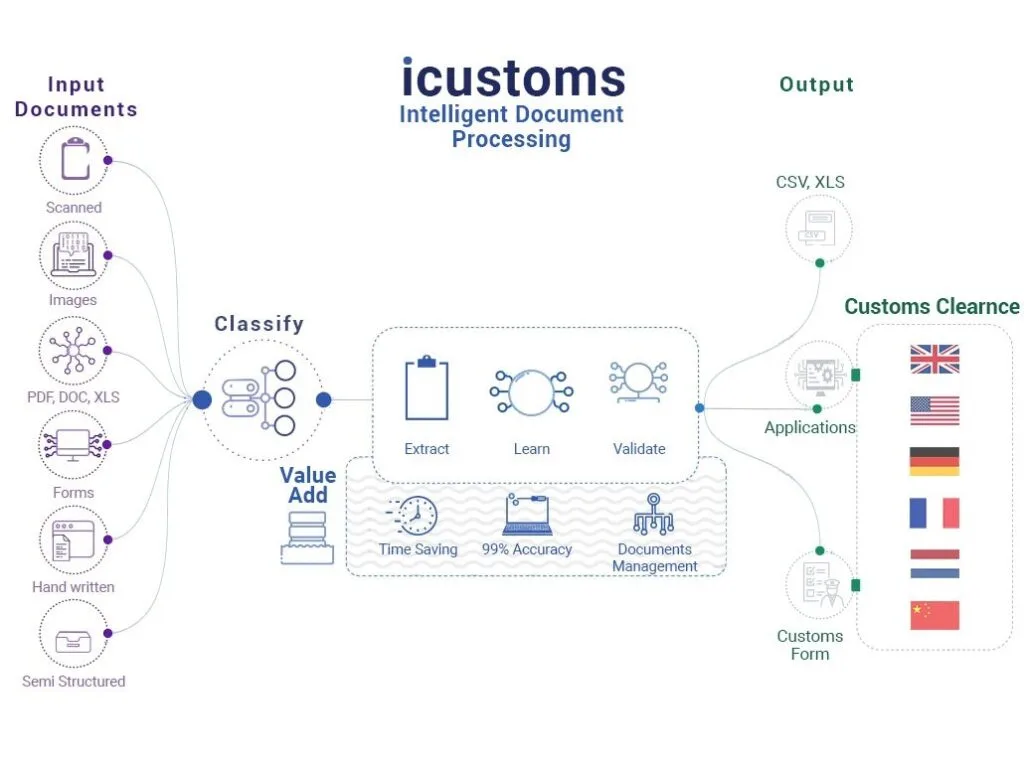Fast & Accurate ENS GB & EU ICS2 Solutions Built for You.
How Generative AI is Transforming Businesses Globally?
-
Freya Jane
- Director of Customer's Success
Advances in artificial intelligence, especially generative AI and its applications, like ChatGPT, are causing a major shift in the business landscape. Companies are coming up with creative ways to use this technology to give their clients outstanding value.
This increase is indicative of how AI is revolutionising businesses, increasing productivity, and eventually driving profitability.
Generative AI shows itself as a vital tool for companies managing the complexity of trade compliance as trade laws get more complicated and data quantities keep growing.
iCustoms Leading the charge
As the global trade economy grows, iCustoms is leading the way in implementing cutting-edge technologies and transforming the customs technology sector.
Recent Advances in the Use of Generative AI in Trade Compliance
Here are some ways generative AI is used in the trade compliance industry:
Automation
One of the ways that generative AI is impacting the trade compliance industry is through the automation of compliance processes. Traditionally, trade compliance processes were very manual, and it took a lot of time and money to ensure that all rules were followed.
IDP takes information from any customs document in any format (image, semi-structured, PDF, XLS, etc.) and fills in customs declarations in seconds with 99% accuracy.
Risk management
Generative AI can also improve risk management in the trade compliance industry. AI can find areas of risk for businesses, like transactions that may be more likely to break trade rules, by analysing a lot of data from various sources.
This can help businesses better manage risk and ensure they stay in line with trade laws and rules.
iCustoms AI Rules Engine functionality assesses transactions against thousands of customs rules in real-time, ensuring the accuracy of 99% of customs declarations. This is ground-breaking technology.
HS code lookup
Finding and allocating the correct HS codes is one of the main challenges in the trade compliance industry.
There are legal implications for using incorrect HS codes and, as a result, paying incorrect duties and taxes.
It analyses the features and characteristics of a product and generates a detailed description that includes information about its composition, materials, intended use, and other relevant details. This description is then used to determine the appropriate HS code in real time.
Generative AI helps streamline the HS code-finding process and reduce the risk of errors or misclassification, ultimately saving time and money for businesses involved in international trade.
Conclusion
In conclusion, generative AI could change the customs technology industry in a lot of interesting ways.
However, it is essential that businesses use generative AI responsibly and carefully to ensure that it is used to promote the public good and not to harm it.
Email the iCustoms team at info@icustoms.ai to learn how we are revolutionising the trade compliance business with AI and cutting-edge technologies.
